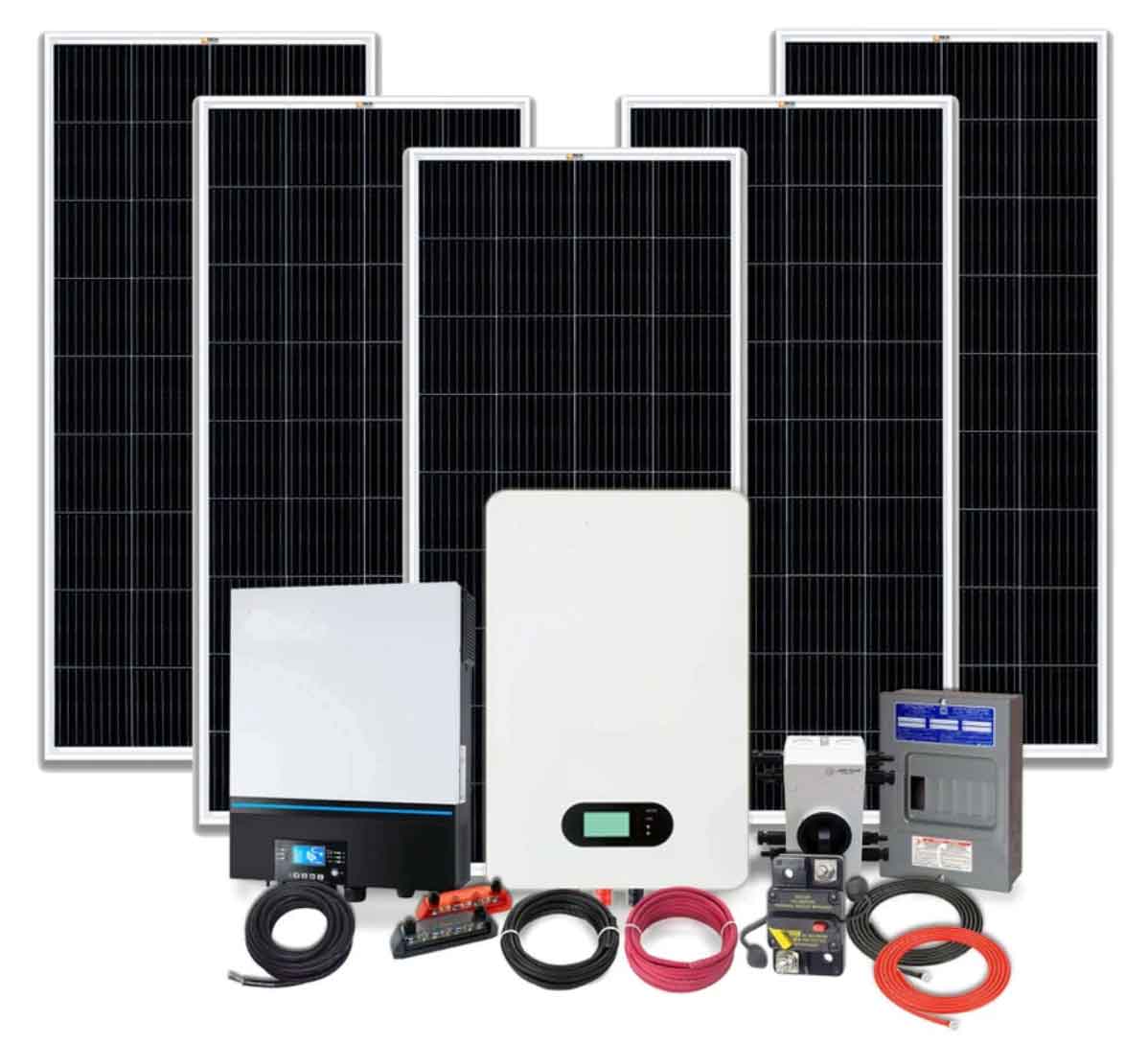
If you’re looking to get started with solar power, a solar panel kit is an excellent choice for beginners. These kits typically contain everything you need to start harnessing solar energy. Here’s a simple guide to understanding and choosing a solar panel kit:
Understanding Solar Panel Kit
- Components of a Kit:
- Solar Panels: The core of the kit, these convert sunlight into electricity.
- Charge Controller: Regulates the electricity coming from the panels to prevent overcharging the battery.
- Battery: Stores the electricity generated by the panels.
- Inverter: Converts the direct current (DC) from the panels or battery into alternating current (AC) used by home appliances.
- Mounting Hardware: Used to secure the panels in place.
- Cabling and Connectors: For connecting all the components.
- Types of Solar Panels:
- Monocrystalline: Efficient and perform well in low-light conditions but are more expensive.
- Polycrystalline: Less efficient but more cost-effective.
- Battery Types:
- Lead-Acid: Traditional, cheaper but requires maintenance.
- Lithium-Ion: More expensive but lasts longer and requires no maintenance.
- Power Rating: Measured in watts (W), indicating the electricity generation capacity of the kit.
- Efficiency: Determines how effectively the panels convert sunlight into energy.
Choosing a Solar Panel Kit
- Assess Your Energy Needs: Calculate the average power consumption of your home or the specific appliances you want to power.
- Consider Your Location:
- Places with more sunlight hours will need fewer panels.
- Climate can affect the type of panel and battery you choose.
- Budget: More efficient systems are pricier. Balance your energy needs with what you can afford.
- Installation Space: Ensure you have enough space for the number of panels you need.
- Ease of Installation: Some kits are designed for DIY installation, while others might require professional help.
- Warranty and Support: Look for kits with a good warranty period and customer support.
- Expandability: Consider if you might want to expand the system in the future.
Installation Tips
- Orientation and Angle: Panels should face the direction that gets the most sunlight and be angled to maximize exposure.
- Avoid Shade: Even a small amount of shade can significantly reduce efficiency.
- Ventilation: Panels can get hot; proper ventilation ensures they operate efficiently.
Safety and Legal Considerations
- Check Local Regulations: Some areas have specific codes or require permits for solar installations.
- Safety Precautions: Follow safety guidelines during installation, especially when working with electrical components.
Maintenance
- Regularly clean the panels for optimal performance.
- Check connections and cables periodically.
- Monitor the performance to detect any issues early.
Starting with a solar panel kit is a fantastic way to begin your journey into renewable energy. It’s environmentally friendly and can reduce your energy bills over time. Remember, the key is to balance your energy needs with your budget and the specifics of your location.
Pages: 1 2
